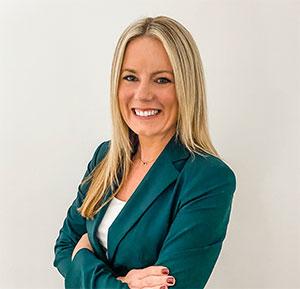The impact of the coronavirus has caused unexpected and considerable changes in our industry in a short period of time. Recent shifts in how we do business have greatly affected the talent in our workforce, leaving many meeting professionals uncertain about the future.
In just six months, the meeting landscape has transformed, and furloughs and layoffs continue to rise. There are daily headlines about travel industry leaders pushing for government relief for millions of travel industry workers. At the same time, virtual event attendance is projected to increase, according to 83 percent of respondents to MPI’s Meetings Outlook 2020 Fall Edition.
Thousands of our colleagues, from entry-level personnel to seasoned industry veterans, are facing difficult choices about their careers and businesses. The rapid and massive growth of virtual events has increased the demand for professionals with specialty skills and new areas of expertise. Remote work, Zoom meetings and a distributed workforce seem like they’re here to stay. It’s all a lot to digest.
One of the greatest threats we face as an industry is the potential for a massive loss of experienced talent. Perhaps the best way we can guide meeting professionals through this transitional time is to provide support and resources to help them decide about the future.
Here, we will explore the different options meeting professionals have to choose from as they weather the storm, build professional resilience and decide which path forward is right for them. Let’s break down the questions and concerns to consider before taking the next step.
What type of career is right for you?
Entrepreneur. Entrepreneurs look for opportunities to bring new, innovative offerings to market. They differ from small business owners because they typically focus on new products, services and models that can disrupt or accelerate industries. Often, they start and run businesses with limited resources with a willingness to take on high-risk ventures that can yield high returns. Startup founders are examples of entrepreneurs.
If you’ve been thinking of going out on your own and you have the vision to see opportunities in the market, now might be the time to start your entrepreneurial journey. There is a high demand for products and services that have not existed previously.
Business Owner. Small businesses are defined as privately owned corporations, partnerships or sole proprietorships that have fewer employees and less annual revenue than a corporation or regular-size business. Small business owners tend to have a goal-oriented mindset, persistence, creativity and a healthy dose of strategy and organization.
The skills you have in your repertoire and the specializations you’ve developed can be adapted and evolved to add value to the current demands for virtual meeting and event support.
Freelancer. Freelancers differ from small business owners in that they are not necessarily looking to manage employees or run a business operation. They tend to prefer working on projects they’re passionate about. Freelancers often work as contractors for clients and are usually paid by the project or by the hour
If you have specialty skills or expertise, you can plug-in and support teams that benefit from additional support in certain areas. Finally, freelancers are likely to enjoy the autonomous nature of contract and remote work.
Employee. Unlike business owners, startup founders and freelancers, employees thrive on structure and consistency. Many people choose traditional employment because it provides clear expectations, regular income and a definitive hierarchy. In addition, employees benefit from a team of colleagues and direct management, which fosters familiarity, stability and professional growth.
What are your strengths and skillsets?
Your strengths can also help you decide which type of career path is best for you. Certain strengths like strategic, futuristic and command are commonly found in business owners and startup leaders. On the other hand, strengths like achiever, discipline and consistency might point to a happy career as an employee. Everyone has a unique set of strengths, and reflecting on yours can help you clarify what to do next.
At Soundings Connect, all of our freelancers take the Clifton Strengths Assessment. The theory behind this assessment is that people are happier and more productive when they’re leveraging their strengths in the workplace. This exercise helps our team and our freelancers understand how they can use their strengths to boost their careers and serve customers.
With all of the changes and uncertainties in our industry, there is no better time to start looking at your strengths and how they add value in today’s marketplace.
What problems need to be solved?
As you consider which career move is right for you, it’s also important to think about how the market has changed, what the current needs are and how you can add value. There is a demand for both new talent and new business products and services, and many of these opportunities did not exist two months ago.
Talent. At the beginning of 2020, the idea of a virtual event concierge was not even on our radar at Soundings Connect. Now, it’s one of our most requested freelance positions.
Virtual event consultants are using their background experience to help customers navigate virtual event planning, including the user experience, the equivalent to the live attendee experience. Similarly, by embracing and adapting to technology platforms and leveraging their interpersonal communication skills, meeting and event planners are transforming into highly skilled webcast producers.
Chances are, the skills you have in your repertoire and the specializations you’ve developed can be adapted and evolved to add value to the current demands for virtual meeting and event support. As meetings and events shift from virtual to hybrid and live, an understanding of virtual events will make you even more valuable post-pandemic.
MPI Independent & Small Business Owners community: Business Opportunities and a supportive network.
Products and Services. Disruption can lead to new possibilities. If you think a startup or small business may be the right path for you, or you are looking to reinvent your current business, first determine which problems need to be solved.
Since the pandemic, we’ve seen a steady rise in demand for products and services. For instance, virtual event platforms, networking technologies, contact-tracing devices and rapid testing for events have become commonplace.
A great example of a small business that emerged from the COVID-19 crisis is Social Bands. Their red, yellow and green bands offer a non-verbal way to communicate your preferences on social distancing. The program is affordable and easy to understand, but most importantly, it offers a solution to a new need in the market.
One startup that’s leveraging their product offering to fill a current need is Proxfinity. They reimagined how the technology behind their event networking device could be used to help with contact tracing in the workplace, and, of course, at live events. There’s no doubt that there are other technologies and services out there that can help us shape our industry for the future.
Looking forward.
As you contemplate your future in meetings and events, make sure to leverage all of the networks and communities available to you. For small businesses, the U.S. Small Business Administration and your local chamber of commerce are great resources. If you are a freelancer, you can take advantage of resources offered by Soundings Thrive by Soundings Connect and the Freelancers Union.
The Independent and Small Business Owners (ISBO) community at MPI is the leading industry resource to support you through decision-making, pivots and transitions. Keep your eye out for content created by the ISBO Advisory Board on the MPI blog and through your local chapters.
The MPI Independent & Small Business Owners community is sponsored by

Photo by Tuesday Temptation on Unsplash



